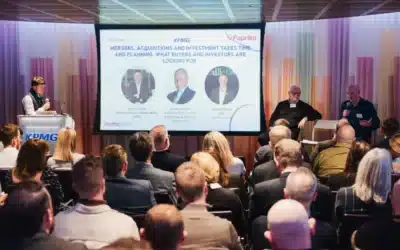In today’s dynamic digital landscape, marketers are faced with the challenge of keeping up with an ever-evolving world of platforms. Social agencies need to adopt a people-first approach and build lasting connections with their audiences or risk being left behind, writes Pete Metcalfe, CEO at SocialChain.
In the past three months alone, Twitter has rebranded as X, TikTok has discontinued its BeReal clone TikTok Now, and Meta’s new app Threads reached 100 million users five days after launch.
At the core of any successful marketing strategy is a deep understanding of your audience. It might be tempting to chase the latest algorithm or platform, but the key to long-term success lies in knowing what audiences are doing and then responding to their needs.
The role of an agency is to be committed to staying at the cutting-edge of platforms. Platforms will always be integral to this business. However, for the next frontier, the agency’s ethos must go beyond that, extending its commitment to the very people using (and understanding the inner workings of) the platforms. It’s a people-first approach.
Adopting a people-first approach ensures that brands aren’t overly focused on short-term gains but are building lasting connections with their audiences that are meaningful. However, this shouldn’t merely lie at the core of an agency’s external beliefs. It needs to be reflected within its internal values as well.
The power of connection
The essence of marketing in the social and creator space is the ability to foster genuine connection and reach the people who matter.
The evolution of social means everyone is more connected to the media than ever before. But as marketers envision a world without third-party cookies, audiences (aka consumers) are also finding it easier to avoid advertising. As a result, brands have been left feeling disconnected.
Agency priorities need to change to overcome the expectation gap between user behaviour and how brands show up. Brands must be attuned to social changes and focus on forging authentic connections with their audience and their people. They must add value to the community in a way that’s distinct to them. This emphasis on connection lets brands stay relevant and resonant in a shifting digital 9:16 world.
A 9:16 world: The dawn of the multi-skilled creator
As social platforms continue to evolve, the line between content creator and consumer is becoming increasingly blurred. This shift raises the question of whether traditional creative roles within media agencies, like creative, content and community managers, cover enough bases in this age.
It’s clear that the dawn of the multi-skilled creator is upon us, and it’s time for agencies to reflect this by redesigning these roles from the ground up. The future should be a creator-first business structure that allows an agency’s people to best showcase their multifaceted skill sets.
And central to this is the ability to embrace everything – from user-generated content to campaigns shot on a smartphone. It’s the way forward. After all, creators aren’t just agency heads anymore. Trend-setting content is just as – if not more – likely to come from a bedroom as the boardroom.
The barrier to entry has never been lower. This is a 9:16 world and an approach that allows for greater innovation and adaptability. Thus enabling brands to thrive in the social media and influencer space.
An #AD for transparency
More creators means more need for transparency in influencer marketing. In fact, it’s one of the most pressing topics in the industry today.
In most cases, the issue is the focus on platforms before people. It’s also down to quick campaign turnaround and treating influencer tactics as a bolt-on rather than as part of an integrated and full-funnel approach.
The industry is maturing, and more measures are being taken to weed out influencers who are not transparent or authentic. Now, it’s time to focus on becoming more creative and strategic in the approach.
For example, it’s important for audiences to see a creator, not a promoter. A TikTok of an influencer brandishing an energy drink they’ve clearly never sipped is not enough (was it ever?)
The point is that if it’s about more than being seen and is instead about building meaningful connections with people, then it’s time to shift. The advice to brands would be to forge long-term, sustainable relationships with creators that authentically align with their values, style, and, most importantly, audience.
The time for a mindset shift is now
The future of marketing in the social and influencer space hinges on a deep understanding of audience preferences, a commitment to meaningful connections, a willingness to embrace user-generated content, and a dedication to transparency.
Only by adopting these principles can brands position themselves as industry leaders and effectively capture their target audience’s attention.
People before platforms. Now it’s only a matter of time before brands experience it for themselves.













